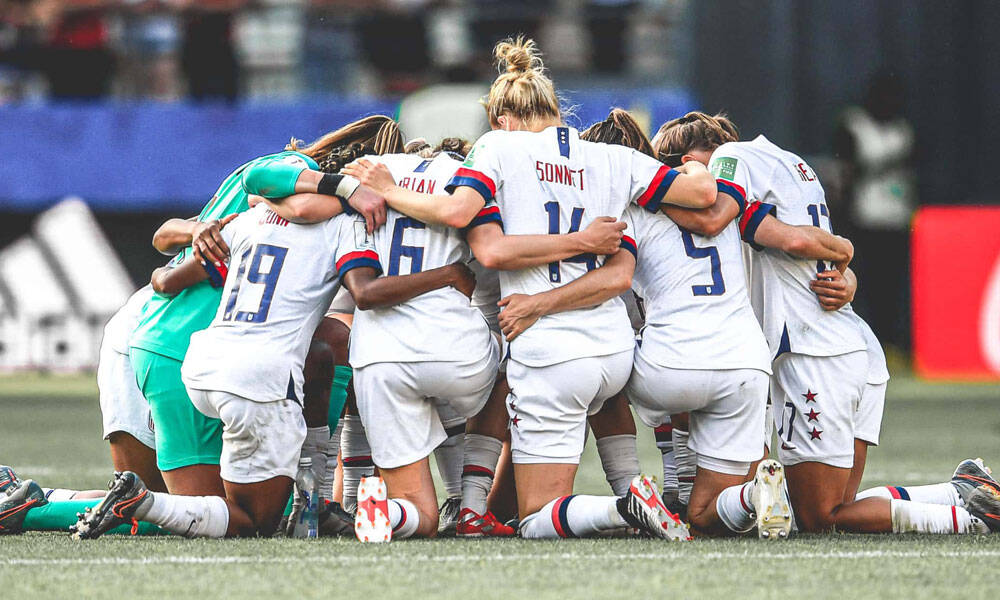
Lessons From the Women’s Soccer Team’s Off-the-Field Battle for Equal Pay
A gender discrimination lawsuit filed by the U.S. women’s soccer team is shining light on the issue of pay equity. One expert says associations can play a role in improving women’s pay in their industries.
While soccer fans are currently cheering on the U.S. Women’s National Team in the World Cup, equal-pay advocates are rooting for them to win in court proceedings. In March, the team sued the U.S. Soccer Federation over being paid less than the men’s team.
Terry O’Neil, executive director of the National Employment Lawyers Association (NELA), said the case—which, according to The Wall Street Journal, is tentatively headed to mediation after the World Cup ends—is bringing attention to the issue.
“It’s a shot in the arm,” O’Neil said. “Women pay attention. They begin to know there is something they may be able to do. I am so grateful and proud of the women’s soccer team for filing this lawsuit.”
O’Neil, who previously headed the National Organization for Women, said the Equal Pay Act has been on the books for more than 50 years, but nationwide, women still earn 80.7 cents for every dollar men earn. The reason for the continuing disparity, O’Neil contends, is poor enforcement.
“It is remarkably difficult to enforce,” she said. “The law is very clear. The problem is to get employers to follow the law. A number of federal courts have been hostile to the enforcement of it. The EEOC [Equal Employment Opportunity Commission], which is charged with enforcing it, is woefully underfunded.”
EEOC keeps statistics on annual pay-discrimination complaints filed, and the numbers have hovered between the mid-900s and low thousands in recent years. While NELA members regularly advocate for employees in legal disputes, O’Neil said the organization does not keep statistics on how many women sue over pay equity. However, when women do sue, the cases are hard to win, and things are getting harder for complainants.
“There is one thing that happened recently that will make it even harder than it has been: the Supreme Court decision in Epic Systems,” O’Neil said. “What that case said was that employers can force you, as a condition of employing you, to agree that you won’t sue your employer for violating your rights. You will only arbitrate. And if the employer has violated the rights of all the women in that workplace, you will only arbitrate one by one.”
O’Neil contends litigation, particularly the kind that can be undertaken as a class, is more effective than arbitration. She describes arbitration as “a secret tribunal with very little discovery and little chance for appeal” that typically favors the employer, with employees winning less often and receiving smaller damages when they do prevail.
Beyond Lawsuits
While NELA focuses on enforcement, O’Neil said there are additional methods to help improve pay equity. First, working on corporate culture is necessary.
“What’s really needed is a restructuring of leadership in corporate America,” O’Neil said. “What we know is, if you have more women on boards of directors and more women in the c-suite—that is the chief executives, the CIO, those people—if you had more women, more women of color, more men of color, these pay issues tend to be much less pronounced.”
In addition to creating more diverse upper management, O’Neil said associations can help change the tenor of their fields by encouraging members to embrace the philosophy behind the law and comply with it.
“What associations can do is really begin sharing within their field: this is the law, this is how it works, this is what to do,” O’Neil said. “Associations can massively educate their members on what the requirements of the law are, and how to make sure that they are compliant with the law.”
(via U.S. Soccer)






Comments